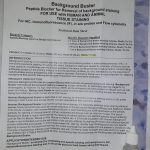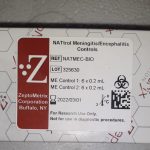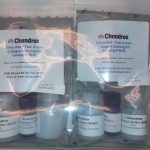Introduction: Unlike Escherichia coli , Campylobacter jejuni is unable to import a range of sugars, including arabinose, which makes common expression vectors, such as pBAD33, non-functional in these bacteria.
Aim: The aim of this study was to investigate whether the E. coli transporters AraE and modified LacY (LacYA177C) would enable C. jejuni to uptake arabinose.
Methodology and results: The respective genes of E. coli were constitutively expressed in C. jejuni strain 11168H after integration into the chromosome via homologous recombination. Vectors carrying these genes also contained a reporter gene, gfp, under the control of the arabinose-inducible promoter, pBAD. These constructs were verified in E. coli by demonstrating the induction of gfp in the presence of arabinose.
Integration of the genes into one of the rRNA gene clusters was verified by PCR and genome sequencing. The latter also confirmed that the inserted gene clusters contained no mutations. Expression of the gfp gene in the presence of arabinose inducer was monitored using fluorescence microscopy of colonies and fluorimetry using both whole cells and lysates.
Conclusion: The results demonstrated the inability of C. jejuni to use arabinose transporters, which are fully functional in E. coli , suggesting a remarkable difference in the physiology of these bacteria.
Genome-Wide Analysis of Peptidoglycan Recognition Protein Genes in Fig Wasps (Hymenoptera, Chalcidoidea)
- The innate immunity is the most important defense against pathogen of insects, and the peptidoglycan recognition proteins (PGRPs) play an important role in the processes of immune recognition and initiation of Toll, IMD and other signal pathways. In fig wasps, pollinators and non-pollinators present different evolutionary histories and lifestyles, even though both are closely associated with fig syconia, which may indicate their different patterns in the evolution of PGRPs.
- By manual annotation, we got all the PGRP genes of 12 fig wasp species, containing seven pollinators and five non-pollinators, and investigated their putative different evolutionary patterns. We found that the number of PGRP genes in pollinators was significantly lower than in non-pollinators, and the number of catalytic PGRP presented a declining trend in pollinators.
- More importantly, PGRP-SA is associated with initiating the Toll pathway, as well as gram-negative bacteria-binding proteins (GNBPs), which were completely lost in pollinators, which led us to speculate that the initiation of Toll pathway was simpler in pollinators than in non-pollinators.
- We concluded that fig pollinators owned a more streamlined innate immune recognition system than non-pollinators. Our results provide molecular evidence for the adaptive evolution of innate immunity in insects of host specificity.
Comparative genomics of Alexander Fleming’s original Penicillium isolate (IMI 15378) reveals sequence divergence of penicillin synthesis genes
Antibiotics were derived originally from wild organisms and therefore understanding how these compounds evolve among different lineages might help with the design of new antimicrobial drugs. We report the draft genome sequence of Alexander Fleming’s original fungal isolate behind the discovery of penicillin, now classified as Penicillium rubens Biourge (1923) (IMI 15378). We compare the structure of the genome and genes involved in penicillin synthesis with those in two ‘high producing’ industrial strains of P. rubens and the closely related species P. nalgiovense.
The main effector genes for producing penicillin G (pcbAB, pcbC and penDE) show amino acid divergence between the Fleming strain and both industrial strains, whereas a suite of regulatory genes are conserved. Homologs of penicillin N effector genes cefD1 and cefD2 were also found and the latter displayed amino acid divergence between the Fleming strain and industrial strains.
The draft assemblies contain several partial duplications of penicillin-pathway genes in all three P. rubens strains, to differing degrees, which we hypothesise might be involved in regulation of the pathway. The two industrial strains are identical in sequence across all effector and regulatory genes but differ in duplication of the pcbAB-pcbC-penDE complex and partial duplication of fragments of regulatory genes. We conclude that evolution in the wild encompassed both sequence changes of the effector genes and gene duplication, whereas human-mediated changes through mutagenesis and artificial selection led to duplication of the penicillin pathway genes.
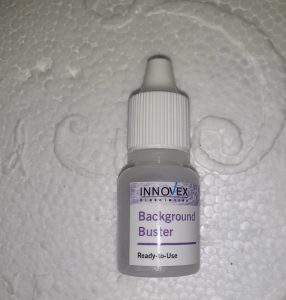
stjosephs-hospital
Transposon Insertion in the purL Gene Induces Biofilm Depletion in Escherichia coli ATCC 25922
Current Escherichia coli antibiofilm treatments comprise a combination of antibiotics commonly used against planktonic cells, leading to treatment failure. A better understanding of the genes involved in biofilm formation could facilitate the development of efficient and specific new antibiofilm treatments.
A total of 2578 E. coli mutants were generated by transposon insertion, of which 536 were analysed in this study. After sequencing, Tn263 mutant, classified as low biofilm-former (LF) compared to the wild-type (wt) strain (ATCC 25922), showed an interruption in the purL gene, involved in the de novo purine biosynthesis pathway.
To elucidate the role of purL in biofilm formation, a knockout was generated showing reduced production of curli fibres, leading to an impaired biofilm formation. These conditions were restored by complementation of the strain or addition of exogenous inosine. Proteomic and transcriptional analyses were performed to characterise the differences caused by purL alterations.
Thirteen proteins were altered compared to wt. The corresponding genes were analysed by qRT-PCR not only in the Tn263 and wt, but also in clinical strains with different biofilm activity. Overall, this study suggests that purL is essential for biofilm formation in E. coli and can be considered as a potential antibiofilm target.
Characterizing patient-oncologist communication in genomic tumor testing: The 21-gene recurrence score as an exemplar
Objective: Women with early-stage, ER + breast cancer are recommend to receive genomic profiling tests, such as the 21-gene Recurrence Score (RS) test, to guide treatment decisions. We examined test- and treatment-related information discussed and the associations between RS categories and aspects of communication during patient-oncologist clinical encounters.
Methods: As part of a larger trial, clinical encounters (N = 46) were audiorecorded and coded for 1) RS- and treatment-related information, 2) shared decision making, 3) patient active participation, and 4) oncologist patient-centered communication. We examined differences by RS category using mixed models, adjusting for nesting within oncologist.
Results: Patients with a high RS were more likely to receive a chemotherapy recommendation (p < .01), hear about the risks/side effects of chemotherapy (p < .01), and offer their preferences (p = .02) than those with intermediate or low RS. Elements of shared decision making increased with RS. Oncologist patient-centered communication (M = 4.09/5, SD = .25) and patient active participation (M = 3.5/4, SD = 1.0) were high across RS.
Conclusion: Findings suggest that disease severity, rather than clinical uncertainty, impact treatment recommendations and shared decision making.
Practice implications: Oncologists adjust test- and treatment-related information and shared decision making by disease severity. This information provides a framework to inform decision making in complex cancer and genomics settings.
 ACTN3 Antibody |
|
E034157 |
EnoGene |
100μg/100μl |
EUR 255 |
|
Description: Available in various conjugation types. |
 ACTN3 Antibody |
|
E11-12026C |
EnoGene |
100μg |
EUR 225 |
|
Description: Available in various conjugation types. |
 ACTN3 Antibody |
|
E19-7803-1 |
EnoGene |
50ug/50ul |
EUR 145 |
|
Description: Available in various conjugation types. |
 ACTN3 Antibody |
|
E19-7803-2 |
EnoGene |
100ug/100ul |
EUR 225 |
|
Description: Available in various conjugation types. |
 ACTN3 Antibody |
|
E38PA1013 |
EnoGene |
100ul |
EUR 225 |
|
Description: Available in various conjugation types. |
 ACTN3 Antibody |
|
E305177 |
EnoGene |
100ug/200ul |
EUR 275 |
|
Description: Available in various conjugation types. |
 ACTN3 antibody |
|
70R-32269 |
Fitzgerald |
100 ug |
EUR 294 |
|
|
|
Description: Rabbit polyclonal ACTN3 antibody |
 ACTN3 antibody |
|
70R-49332 |
Fitzgerald |
100 ul |
EUR 242 |
|
|
|
Description: Purified Polyclonal ACTN3 antibody |
 ACTN3 Antibody |
|
1-CSB-PA288460 |
Cusabio |
-
Ask for price
-
Ask for price
|
|
|
|
|
Description: A polyclonal antibody against ACTN3. Recognizes ACTN3 from Human, Mouse. This antibody is Unconjugated. Tested in the following application: ELISA, WB;ELISA:1:2000-1:5000, WB:1:500-1:2000 |
 ACTN3 Antibody |
|
1-CSB-PA124802 |
Cusabio |
-
Ask for price
-
Ask for price
|
|
|
|
|
Description: A polyclonal antibody against ACTN3. Recognizes ACTN3 from Human, Mouse. This antibody is Unconjugated. Tested in the following application: ELISA, WB;ELISA:1:2000-1:5000, WB:1:500-1:2000 |
 ACTN3 Antibody |
|
1-CSB-PA000816 |
Cusabio |
-
Ask for price
-
Ask for price
|
|
|
|
|
Description: A polyclonal antibody against ACTN3. Recognizes ACTN3 from Human, Mouse, Rat. This antibody is Unconjugated. Tested in the following application: WB, IF, ELISA;WB:1/500-1/2000.IF:1/200-1/1000.ELISA:1/20000 |
 ACTN3 Antibody |
|
1-CSB-PA001243LA01HU |
Cusabio |
-
Ask for price
-
Ask for price
|
|
|
|
|
Description: A polyclonal antibody against ACTN3. Recognizes ACTN3 from Human. This antibody is Unconjugated. Tested in the following application: ELISA, IF; Recommended dilution: IF:1:50-1:200 |
 ACTN3 Antibody |
|
R32494 |
NSJ Bioreagents |
100 ug |
EUR 356.15 |
|
|
|
Description: Alpha-actinin-3, also known as alpha-actinin skeletal muscle isoform 3 or F-actin cross-linking protein, is a protein that in humans is encoded by the ACTN3 gene. This gene encodes a member of the alpha-actin binding protein gene family. The encoded protein is primarily expressed in skeletal muscle and functions as a structural component of sarcomeric Z line. This protein is involved in crosslinking actin containing thin filaments. An allelic polymorphism in this gene results in both coding and non-coding variants; the reference genome represents the coding allele. The non-functional allele of this gene is associated with elite athlete status. |
 ACTN3 Antibody |
|
MBS7108784-005mg |
MyBiosource |
0.05mg |
EUR 190 |
 ACTN3 Antibody |
|
MBS7108784-01mg |
MyBiosource |
0.1mg |
EUR 270 |
 ACTN3 Antibody |
|
MBS7108784-5x01mg |
MyBiosource |
5x0.1mg |
EUR 1205 |
 ACTN3 Antibody |
|
MBS7124555-005mL |
MyBiosource |
0.05mL |
EUR 190 |
 ACTN3 Antibody |
|
MBS7124555-01mL |
MyBiosource |
0.1mL |
EUR 270 |
 ACTN3 Antibody |
|
MBS7124555-5x01mL |
MyBiosource |
5x0.1mL |
EUR 1205 |
 ACTN3 Antibody |
|
MBS7124556-005mL |
MyBiosource |
0.05mL |
EUR 190 |
 ACTN3 Antibody |
|
MBS7124556-01mL |
MyBiosource |
0.1mL |
EUR 270 |
 ACTN3 Antibody |
|
MBS7124556-5x01mL |
MyBiosource |
5x0.1mL |
EUR 1205 |
 ACTN3 Antibody |
|
MBS7121762-005mg |
MyBiosource |
0.05mg |
EUR 150 |
 ACTN3 Antibody |
|
MBS7121762-01mg |
MyBiosource |
0.1mg |
EUR 190 |
 ACTN3 Antibody |
|
MBS7121762-5x01mg |
MyBiosource |
5x0.1mg |
EUR 845 |
 ACTN3 Antibody |
|
MBS9403846-005mL |
MyBiosource |
0.05mL |
EUR 245 |
 ACTN3 Antibody |
|
MBS9403846-01mL |
MyBiosource |
0.1mL |
EUR 305 |
 ACTN3 Antibody |
|
MBS9403846-5x01mL |
MyBiosource |
5x0.1mL |
EUR 1230 |
 ACTN3 Antibody |
|
MBS8580278-01mL |
MyBiosource |
0.1mL |
EUR 305 |
 ACTN3 Antibody |
|
MBS8580278-01mLAF405L |
MyBiosource |
0.1mL(AF405L) |
EUR 465 |
 ACTN3 Antibody |
|
MBS8580278-01mLAF405S |
MyBiosource |
0.1mL(AF405S) |
EUR 465 |
 ACTN3 Antibody |
|
MBS8580278-01mLAF610 |
MyBiosource |
0.1mL(AF610) |
EUR 465 |
 ACTN3 Antibody |
|
MBS8580278-01mLAF635 |
MyBiosource |
0.1mL(AF635) |
EUR 465 |
 ACTN3 Antibody |
|
MBS855778-01mg |
MyBiosource |
0.1mg |
EUR 345 |
 ACTN3 Antibody |
|
MBS855778-01mLAF405L |
MyBiosource |
0.1mL(AF405L) |
EUR 565 |
 ACTN3 Antibody |
|
MBS855778-01mLAF405S |
MyBiosource |
0.1mL(AF405S) |
EUR 565 |
 ACTN3 Antibody |
|
MBS855778-01mLAF610 |
MyBiosource |
0.1mL(AF610) |
EUR 565 |
 ACTN3 Antibody |
|
MBS855778-01mLAF635 |
MyBiosource |
0.1mL(AF635) |
EUR 565 |
 ACTN3 Antibody |
|
MBS9210925-01mL |
MyBiosource |
0.1mL |
EUR 415 |
 ACTN3 Antibody |
|
MBS9210925-5x01mL |
MyBiosource |
5x0.1mL |
EUR 1841 |
 ACTN3 Antibody |
|
MBS8509804-01mg |
MyBiosource |
0.1mg |
EUR 305 |
 ACTN3 Antibody |
|
MBS8509804-01mLAF405L |
MyBiosource |
0.1mL(AF405L) |
EUR 465 |
 ACTN3 Antibody |
|
MBS8509804-01mLAF405S |
MyBiosource |
0.1mL(AF405S) |
EUR 465 |
 ACTN3 Antibody |
|
MBS8509804-01mLAF610 |
MyBiosource |
0.1mL(AF610) |
EUR 465 |
 ACTN3 Antibody |
|
MBS8509804-01mLAF635 |
MyBiosource |
0.1mL(AF635) |
EUR 465 |
 ACTN3 Antibody |
|
MBS8517167-005mg |
MyBiosource |
0.05mg |
EUR 235 |
 ACTN3 Antibody |
|
MBS8517167-01mg |
MyBiosource |
0.1mg |
EUR 305 |
 ACTN3 Antibody |
|
MBS8517167-01mLAF405M |
MyBiosource |
0.1mL(AF405M) |
EUR 465 |
 ACTN3 Antibody |
|
MBS8517167-01mLAF546 |
MyBiosource |
0.1mL(AF546) |
EUR 465 |
 ACTN3 Antibody |
|
MBS8517167-01mLAF750 |
MyBiosource |
0.1mL(AF750) |
EUR 465 |
 ACTN3 Antibody |
|
MBS5313952-01mL |
MyBiosource |
0.1mL |
EUR 470 |
 ACTN3 Antibody |
|
MBS5313952-5x01mL |
MyBiosource |
5x0.1mL |
EUR 1955 |
 ACTN3 Antibody |
|
MBS9608500-01mL |
MyBiosource |
0.1mL |
EUR 260 |
 ACTN3 Antibody |
|
MBS9608500-02mL |
MyBiosource |
0.2mL |
EUR 305 |
 ACTN3 Antibody |
|
MBS9608500-5x02mL |
MyBiosource |
5x0.2mL |
EUR 1220 |
 ACTN3 Antibody |
|
MBS9505601-005mL |
MyBiosource |
0.05mL |
EUR 285 |
 ACTN3 Antibody |
|
MBS9505601-01mL |
MyBiosource |
0.1mL |
EUR 385 |
 ACTN3 Antibody |
|
MBS9505601-5x01mL |
MyBiosource |
5x0.1mL |
EUR 1590 |
 ACTN3 Antibody |
|
DF8016-100ul |
Affinity Biosciences |
100ul |
EUR 168 |
|
Description: WB,IF/ICC,ELISA(peptide) |
 ACTN3 Antibody |
|
DF8016-200ul |
Affinity Biosciences |
200ul |
EUR 210 |
|
Description: WB,IF/ICC,ELISA(peptide) |
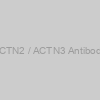 ACTN2 / ACTN3 Antibody |
|
abx332374-100ul |
Abbexa |
100 ul |
EUR 510 |
|
|
 ACTN2 / ACTN3 Antibody |
|
20-abx329446 |
Abbexa |
-
Ask for price
-
Ask for price
|
|
|
|
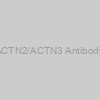 ACTN2/ACTN3 Antibody |
|
CSB-PA960396- |
Cusabio |
each |
EUR 402 |
|
|
|
Description: A polyclonal antibody against ACTN2/ACTN3. Recognizes ACTN2/ACTN3 from Human, Mouse, Rat. This antibody is Unconjugated. Tested in the following application: ELISA, WB, IHC, IF;WB:1:500-1:3000, IHC:1:50-1:100, IF:1:100-1:500 |
 ACTN2/ACTN3 Antibody |
|
CSB-PA960396-100ul |
Cusabio |
100ul |
EUR 379.2 |
|
|
|
Description: A polyclonal antibody against ACTN2/ACTN3. Recognizes ACTN2/ACTN3 from Human, Mouse, Rat. This antibody is Unconjugated. Tested in the following application: ELISA, WB, IHC, IF;WB:1:500-1:3000, IHC:1:50-1:100, IF:1:100-1:500 |
 ACTN2/ACTN3 Antibody |
|
1-CSB-PA000815 |
Cusabio |
-
Ask for price
-
Ask for price
|
|
|
|
|
Description: A polyclonal antibody against ACTN2/ACTN3. Recognizes ACTN2/ACTN3 from Human, Mouse, Rat. This antibody is Unconjugated. Tested in the following application: WB, IHC, IF, ELISA;WB:1/500-1/2000.IHC:1/100-1/300.IF:1/200-1/1000.ELISA:1/20000 |
 ACTN2 / ACTN3 Antibody |
|
abx329446-100g |
Abbexa |
100 µg |
Ask for price |
 ACTN2 / ACTN3 Antibody |
|
abx329446-20g |
Abbexa |
20 µg |
EUR 187.5 |
 ACTN2 / ACTN3 Antibody |
|
abx329446-50g |
Abbexa |
50 µg |
EUR 250 |
 ACTN2/ACTN3 Antibody |
|
MBS7132755-01mL |
MyBiosource |
0.1mL |
EUR 270 |
 ACTN2/ACTN3 Antibody |
|
MBS7132755-5x01mL |
MyBiosource |
5x0.1mL |
EUR 1200 |
 ACTN2/ACTN3 Antibody |
|
MBS7121761-005mg |
MyBiosource |
0.05mg |
EUR 150 |
 ACTN2/ACTN3 Antibody |
|
MBS7121761-01mg |
MyBiosource |
0.1mg |
EUR 190 |
 ACTN2/ACTN3 Antibody |
|
MBS7121761-5x01mg |
MyBiosource |
5x0.1mg |
EUR 845 |
) ACTN3 Antibody (Center) |
|
MBS9203518-008mL |
MyBiosource |
0.08mL |
EUR 210 |
) ACTN3 Antibody (Center) |
|
MBS9203518-04mL |
MyBiosource |
0.4mL |
EUR 430 |
) ACTN3 Antibody (Center) |
|
MBS9203518-5x04mL |
MyBiosource |
5x0.4mL |
EUR 1910 |
 Polyclonal ACTN3 Antibody |
|
APR14796G |
Leading Biology |
0.1ml |
EUR 580.8 |
|
Description: A polyclonal antibody raised in Rabbit that recognizes and binds to Human ACTN3 . This antibody is tested and proven to work in the following applications: |
 ACTN3 Polyclonal Antibody |
|
E912797 |
EnoGene |
100ul |
EUR 225 |
|
Description: Available in various conjugation types. |
 ACTN3 Polyclonal Antibody |
|
E912864 |
EnoGene |
100ul |
EUR 225 |
|
Description: Available in various conjugation types. |
 ACTN3 Conjugated Antibody |
|
C34157 |
SAB |
100ul |
EUR 476.4 |
 ACTN3 Polyclonal Antibody |
|
E-AB-90515-120uL |
Elabscience Biotech |
120uL |
EUR 320 |
|
|
|
Description: Unconjugated |
 ACTN3 Polyclonal Antibody |
|
E-AB-90515-200uL |
Elabscience Biotech |
200uL |
EUR 530 |
|
|
|
Description: Unconjugated |
 ACTN3 Polyclonal Antibody |
|
E-AB-90515-60uL |
Elabscience Biotech |
60uL |
EUR 200 |
|
|
|
Description: Unconjugated |
 ACTN3 Polyclonal Antibody |
|
E-AB-90515-each |
Elabscience Biotech |
each |
Ask for price |
|
|
|
Description: Unconjugated |
















































































)
)
)









